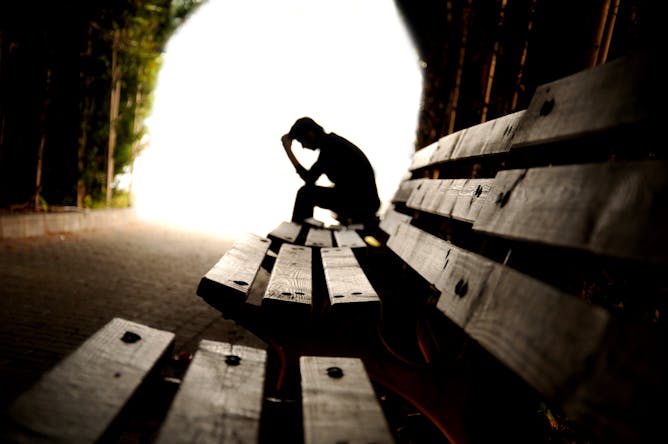|
|
|
Editor's note
|
|
In the last few weeks, coverage of the murder trial of victim Grace Millane has been relentless. The 21-year-old died as a result of strangulation during sex in 2018 while backpacking through New Zealand. In a bid to exonerate their client, the defence focused on the most lurid details of Millane’s personal life, knitting together a narrative of proclivities for BDSM, past sexual partners and of “rough sex gone wrong”. The UK media fixated on this argument in their coverage and in doing so they presented Millane as partially responsible for her own death.
Research has found that this kind of coverage is typical of representations of violence against women. When it comes to media reporting of the men involved in such crimes, narratives often turn a blind eye to previous histories of violence. And while data published by the Office for National Statistics found the majority of victims of sexual violence are female – with around 560,000 female victims and 140,000 male victims in 2017 – the media rarely present violence against women as a systemic societal issue, but one of isolated incidents. Daisy Richards explores this trend in reporting, which can be seen as far back as the Ripper murders, and which
continues to perpetuate victim-blaming.
In election coverage, a business economist argues why Labour’s plans to renationalise energy networks is a bad idea. And in health, a new study suggests men may be far more at risk of major depression in deprived areas, while women are more likely to experience anxiety.
|
Naomi Joseph
Commissioning Editor, Arts + Culture
|

|
|
Top stories
|

Grace Millane, 21, was killed in 2018 while backpacking in New Zealand.
Auckland City Police/PA Wire/PA Images
Daisy Richards, De Montfort University
The media presents female victims as culpable for their own brutalisation. For Grace Millane, this meant her sexual preferences were more important than the horror of her death
|

Shutterstock
Michael Pollitt, Cambridge Judge Business School
Evidence from the UK and around the world suggests private ownership results in more efficient companies, more investment and more renewable energy.
|

Shutterstock
Olivia Remes, University of Cambridge
New research shows that men living in the most deprived areas were 51% more likely to experience depression than those living in areas that were not deprived.
|
Politics + Society
|
-
Rowland Atkinson, University of Sheffield; Keith Jacobs, University of Tasmania
For decades, social housing has been defunded and ignored. The system is now broken, and it needs to be fixed.
-
Rainbow Murray, Queen Mary University of London; Robin Pettitt, Kingston University
Every vote counts in one way or another, even if you live in a safe seat – here's why.
-
Miriam Bak McKenna, Lund University
What steps can Mauritius take now to get the UK to respect the UN resolution on the Chagos Islands?
-
Lorenza Fontana, Newcastle University
Many thought Bolivia had changed for good under Evo Morales – but perhaps that thinking was premature.
|
|
Health + Medicine
|
-
Namrata Ganneri, University of York
Smallpox is the only disease to be eradicated through sustained human effort. Many of these volunteers were women who defied social norms to save lives in India.
-
Peter Knapp, University of York
One in 20 patients referred to a cancer specialist by their GP don't turn up.
|
|
Education
|
-
Fabio Aricò, University of East Anglia
Should students get refunds during strike action? An education economist gives his thoughts.
|
|
Arts + Culture
|
-
Catherine Edwards, University of York
Two new films feature the bravery and tenacity of government employees who risk everything to expose official wrongdoing.
|
|
Business + Economy
|
-
John Colley, Warwick Business School, University of Warwick
Uber's London licence has been a political football for several years, but that's not really the point.
|
|
| |
| |
| |
| |

|
| |
| |
| |
Featured events
|

|
G10, Palmer Building, Whiteknights Campus, University of Reading, Reading, West Berkshire, RG6 6UR, United Kingdom of Great Britain and Northern Ireland — University of Reading
|

|
Oxford Martin School, 34 Broad Street, Oxford, Oxfordshire, OX1 3BD, United Kingdom of Great Britain and Northern Ireland — University of Oxford
|

|
Park Building (Room 2.23) King Henry I Street, Portsmouth, Hampshire, PO1 2DZ, United Kingdom of Great Britain and Northern Ireland — University of Portsmouth
|

|
Lecture Theatre One, UEA, Norwich, Norfolk, NR4 7TJ, United Kingdom of Great Britain and Northern Ireland — University of East Anglia
|
|
|
|
| |
| |
| |
| |
| |
|
|
|
|
|
|
|